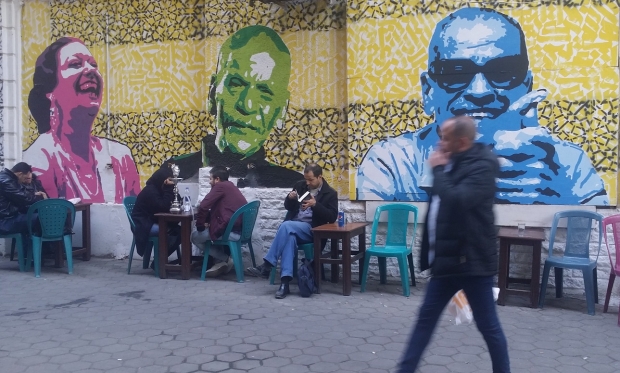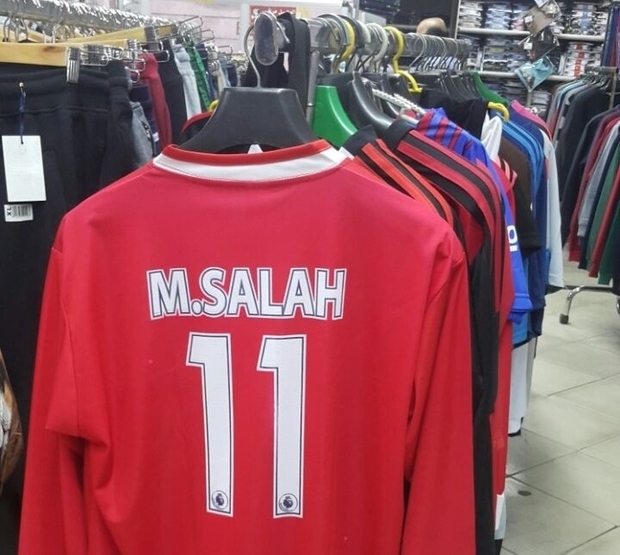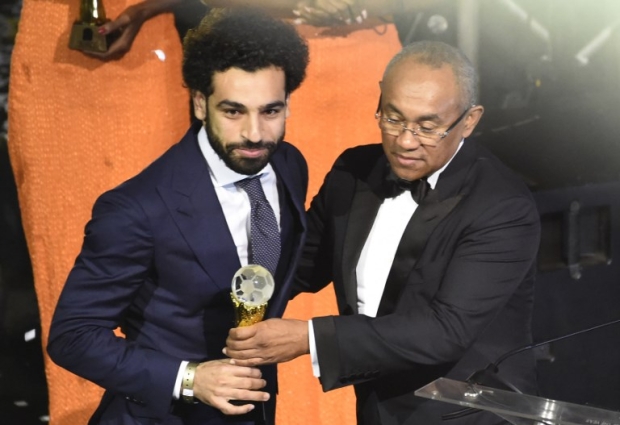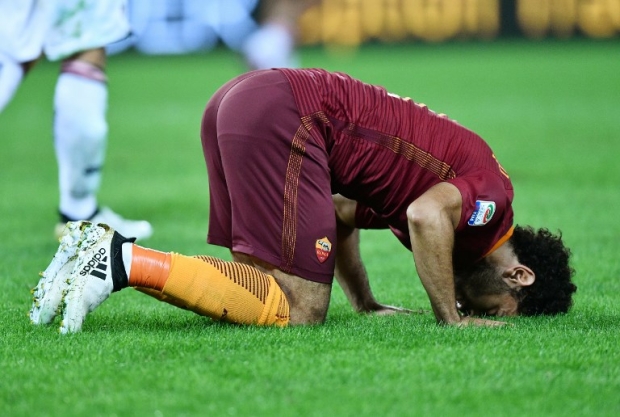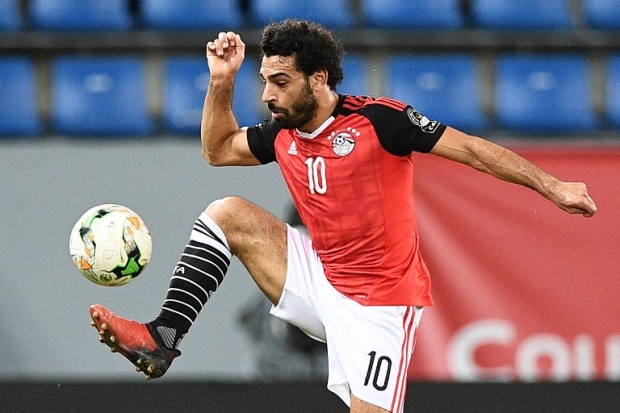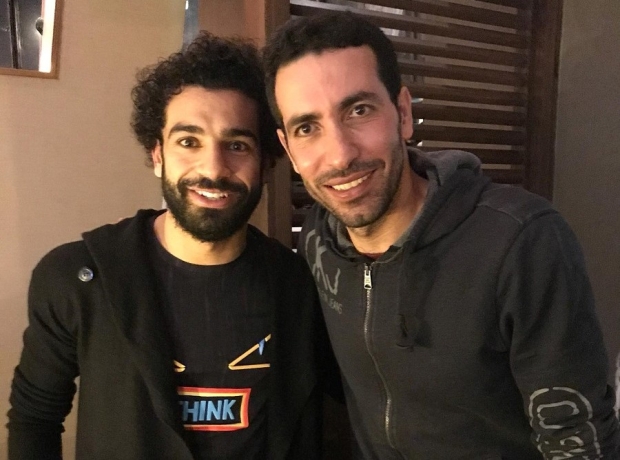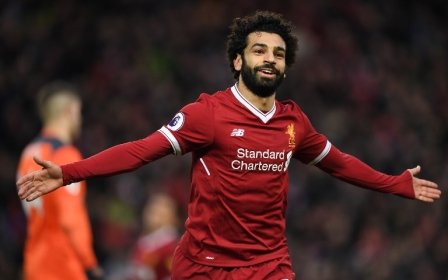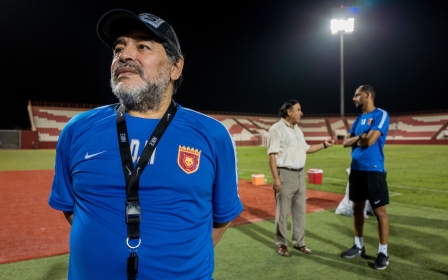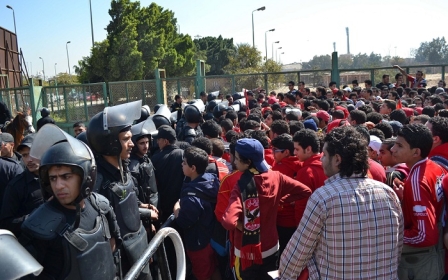Egypt's 'fourth pyramid' Mohamed Salah: 'He is one of us'
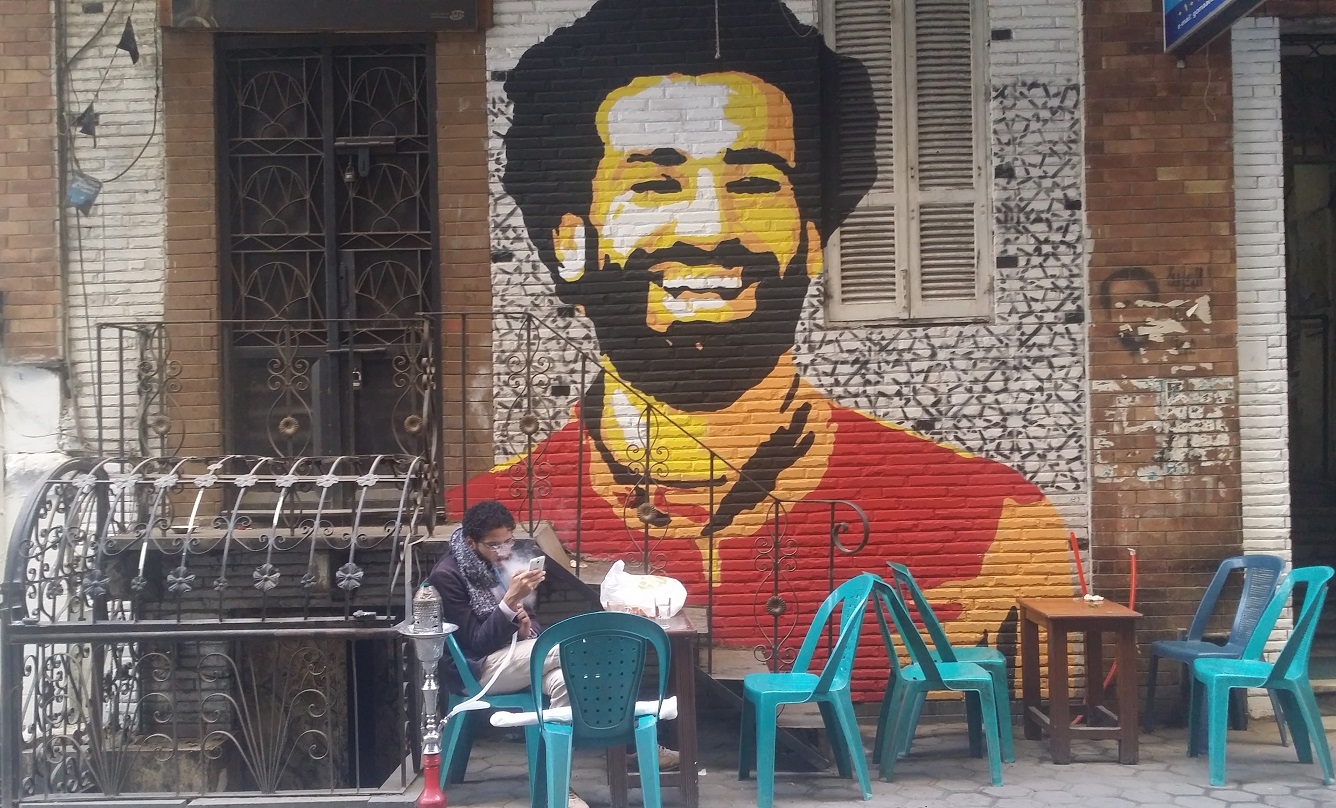
CAIRO - It's difficult to miss the big mural of Liverpool's Egyptian forward Mohamed Salah in Egypt's capital. On the walls of downtown Cairo, the 25-year-old appears alongside some of Egypt's most iconic figures, such as legendary singer Umm Kulthum and the Nobel-winning Egyptian novelist Naguib Mahfouz.
“Salah is a national hero who has made the country's dreams come true," Mohamed Megahed, a government employee, told MEE.
Salah is a national hero who has made the country's dreams come true
- Mohamed Megahed, government employee
Many PlayStation shops in Egypt have put large posters of Salah on display alongside Lionel Messi from Barcelona and Real Madrid's Cristiano Ronaldo, the world's two outstanding players of the past decade.
“My six-year-old son plays with Liverpool on PlayStation, not with Messi or Ronaldo, because he wants to play with Salah," Megahed said. Born in the city of Mansoura in the Nile Delta, Megahed is the proud owner of a photo he took with Salah seven years ago, when he met him by chance in Johannesburg.
According to a vendor from the famous retail chain in Egypt Al-Tawheed wel Noor, sales of t-shirts with Salah's name on them have skyrocketed, for the price of a little over $2.
“He is an example of the rural ambitious man that never gave up, and this inspires Egyptians,” Megahed explained.
Salah is the first Egyptian to be named African Footballer of the Year by the Confederation of African Football (CAF) since Al-Ahli's Mahmoud al-Khatib, one of the legends of Egyptian football, won the honour in 1983.
“African Footballer of the year is a prize African legends win, and now he is one of the continent's legends,” Amr Mostafa, a chemical engineer told MEE, referring to past winner,s Cameroonian Samuel Eto'o and Liberian George Weah.
In pure devastation, Salah collapsed on the pitch for 30 seconds. Yet the star quickly stood up and applauded, encouraging himself and his teammates to score the winning goal, waving his hand to fans to cheer them on. Egypt then managed to gain a penalty.
“It was a very difficult moment. Many talented players could have missed such a shot under so much pressure. But Salah was up to it and he scored,” Mostafa said.
Passion, determination, and persistence have paved the way for Salah to occupy the hearts of millions of Egyptians who see him as one of them.
“When Egypt needed him, he was there to give a helping hand. He made 95 million Egyptians happy and proud,” Megahed said.
Months earlier, Salah had also led his country to the finals in the African Cup of Nations. But the seven-time champions were beaten 2-1 in the final by Cameroon.
'He looks like us'
Born to a poor family on 15 June 1992 in Nagrig village in al-Gharbiya, in the Nile Delta, Salah faced many hardships throughout his life.
His father, a salesman, was unable to afford higher education for his son, so Salah decided to pursue his dream of becoming a football player.
He suffered like us. He faced the same difficulties and barriers that we face, but he was persistent and succeeded
-Amr Mostafa, a chemical engineer
As a teenager, Salah had to take three microbuses to commute for over two hours every day from his village to get to El Mokawloon football club in Cairo.
“He suffered like us. He faced the same difficulties and barriers that we face, but he was persistent and succeeded,” said 34-year-old Mostafa, who follows all of Salah’s games.
For Mostafa, Salah is “the humble man who despite all of his success, still returns to his village and attends the weddings of his friends and relatives".
“He is one of us. He looks like us,” he asserted.
According to local media reports, he donated money to buy hospital equipment, renovate schools, and build an ambulance unit in his village.
Famous Egyptian pop singer Hisham Abbas even dedicated a song to Salah, based on a chant by Liverpool fans.
“Sometimes he bends down on his knees to thank God on the pitch when he scores. This is amazing. He has never forgotten his relationship with God,” Mostafa said.
Salah’s daughter is named Mecca after the holiest city in Islam.
'He achieved my dream'
In 2012, Salah joined the Swiss club FC Basel and two years later he moved to English giants Chelsea but failed to establish himself as a first-team regular.
But the footballer has come a long way from being the nervous kid he says he used to be when he was at Chelsea. From there, he transferred to the Italian teams Fiorentina and Roma, before returning to England by joining Liverpool for a club record transfer fee of $50m in July 2017.
Salah quickly garnered praise for his performances for Liverpool with a series of match-winning performances and in November was selected as player of the month in the Premier League after he bagged seven goals in four matches.
With 17 league goals so far, Salah is currently in the running for the Golden Boot awarded to the top scorer, with one less than Tottenham Hotspur striker Harry Kane.
Former player for El Mokawloon football club Ahmed El Ghoul, 29, told MEE that: "It’s the first time an Egyptian player has got to this level."
For El Ghoul, who works as a marketing employee at an American company in Qatar, Salah "achieved my own dream. I had looked forward to becoming a football player and reaching the world class. I’m pleased he achieved it for me."
He is an example of the rural ambitious man that never gave up, and this inspires Egyptians
-Mohamed Megahed, government employee
Amir Abdel Halim, a football analyst from the filgoal sports website, told MEE that it was clear Salah had worked very hard to become a stronger player.
"There were obvious weak points that he overcame," Abdel Halim said.
"His body structure was weaker. His finishing was a weak point and now he is a scorer," he added.
A friend of Salah who requested to remain anonymous told MEE that Salah knew his weaknesses.
"Salah is smart. He knew well what led to the failures of other Egyptian players in Europe and he put it in his mind not to repeat it."
'He belongs to Egypt'
To Salah's advantage, he has never played for either of Cairo's giants, al-Ahli or Zamalek, whose bitter rivalry often leads to violent clashes between hardcore fans.
“He belongs to Egypt, only Egypt,” El Ghoul said.
He belongs to Egypt, only Egypt
- Ahmed El Ghoul, former football player
Pharmacist Ahmed Mostafa hopes his eight-year-old son Ziad will follow in Salah’s footsteps.
“Salah is a role model for Ziad. We hope he can lead Egypt to the World Cup one day,” said Ahmed.
"We love him. We are proud of him. He is the best representative of our country,” Nasr told MEE.
When Salah’s Liverpool team is playing a game, Nasr's cafe is packed and it’s very difficult to find an empty seat.
“Last time customers chose to watch a Liverpool match rather than a match where Zamalek was competing," he said.
Salah donated for Egypt, not to an Egyptian political party. He donates money that will go to the poor
- Ahmed El Ghoul, former football player
Mostafa stressed that “We don’t cheer for Liverpool, we cheer for Salah”.
“If the coach pulls him out during a game, we change the channel as the game has ended for us,” he said laughing.
Nasr had also wanted a mural of the iconic Ahli football player Mohamed Aboutrika who retired in 2013, but he feared retaliation from the government as Aboutrika is on the “terror list”.
No politics
In May 2015, Aboutrika, known in Egypt as "the Magician" had his assets seized by authorities after being accused of funding the Muslim Brotherhood. Aboutrika has denied the accusations.
In December 2013, the government declared the Muslim Brotherhood a terrorist group. The former player has not been known for publicly expressing his political opinions, although he did endorse Mohamed Morsi’s presidential election in 2012. Aboutrika now lives in Qatar where he works as a sports analyst.
Aboutrika, 39, is Salah’s mentor, and photos of the duo published on social media show that they regularly meet in Europe.
He donated five million EGP ($282,000) to Tahya Masr (Long Live Egypt), a state-run fund aimed at financing development programmes in Egypt. The controversial move angered some fans, who saw it as a sign of support for Egypt's President Abdel Fattah al-Sisi. The fund is under Sisi's direct supervision and Sisi has urged people on several occasions to donate and help develop Egypt.
“I was very angry when he made the donation. It was clear it was for the regime,” said Football fan Belal Wagdy.
I was very angry when he made the donation. It was clear it was for the regime
- Belal Wagdy, football fan
Other fans saw it as a patriotic move to help the less privileged.
"Salah donated for Egypt, not to an Egyptian political party. He donates money that will go to the poor," El Goul said.
Many of his fans say that they are unaware of his explicit political affiliation, which has helped Salah appeal to all Egyptians, regardless of their politics.
“Salah distances himself from politics and that’s very smart of him. He is a footballer and should have no relationship with politics,” Mostafa said.
He also rarely gives television interviews in Egypt, removing opportunities for creating controversy regarding his statements or opinions.
“This is a big award for me, a special moment in my career. I would like to dedicate it to all the kids in Africa and Egypt,” Salah said after receiving the prestigious African Footballer of the Year prize in Accra last Thursday.
“I want to tell them to never stop dreaming, never stop believing,” he added.
“Salah's actions and statements show that he has never forgotten where he belongs. He wants his success to grant hope for others and that makes Egyptians love him more,” Mostafa said.
This article is available in French on Middle East Eye French edition.
Middle East Eye propose une couverture et une analyse indépendantes et incomparables du Moyen-Orient, de l’Afrique du Nord et d’autres régions du monde. Pour en savoir plus sur la reprise de ce contenu et les frais qui s’appliquent, veuillez remplir ce formulaire [en anglais]. Pour en savoir plus sur MEE, cliquez ici [en anglais].


